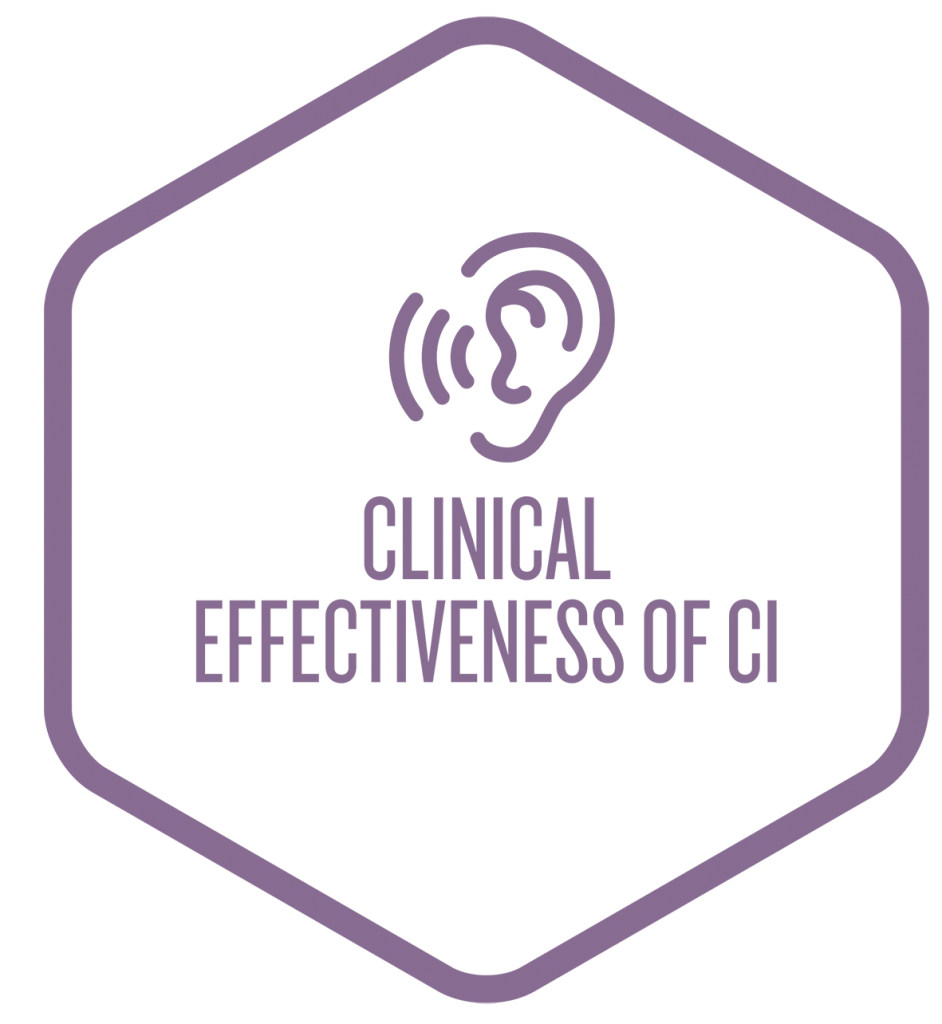Factors associated with post-implantation outcomes
Statement 11:
 Where appropriate, individuals should use hearing aids with their cochlear implant in order to achieve bilateral benefits and the best possible speech recognition and quality of life outcomes.
Where appropriate, individuals should use hearing aids with their cochlear implant in order to achieve bilateral benefits and the best possible speech recognition and quality of life outcomes.
Statement 12:
Many factors impact cochlear implant outcomes; further research is needed to understand the magnitude of the effects.
Statement 13:
Long durations of unaided hearing loss do not rule out potential benefit of cochlear implants: individuals who receive an implant in an ear that was previously unaided for more than 15 years have been shown to experience improvements in speech recognition.
Statement 14:
Adults who have undergone cochlear implantation should receive programming sessions, as needed, to optimise outcomes.

